Distinguished Professor Linda Tuhiwai Smith
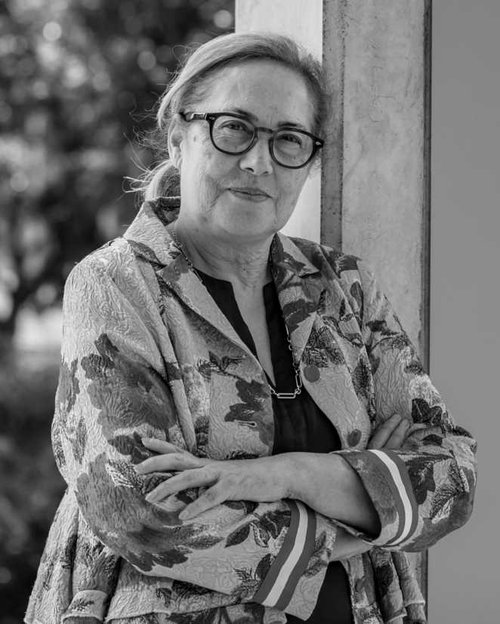
Keynote Speaker — Education systems and practices
Ngāti Awa, Ngāti Porou, Tuhourangi
Linda is a Distinguished Professor at Te Whare Wānanga o Awanuiārangi in Whakatāne, New Zealand. She is known internationally for her work on decolonising research methodologies, Indigenous education and kaupapa Māori (Māori causes). She was founding Co-Director of Ngā Pae o Te Māramatanga the Māori Centre of Research Excellence and has held several senior academic roles at The University of Auckland and The University of Waikato.
Dr Smith has served on the Health Research Council, the Marsden Fund Council, the Royal Society of New Zealand Council and is currently Deputy Chair of Council of Te Whare Wānanga o Awanuiārangi. She is a Fellow of the American Education Research Association, a Fellow of the Royal Society of New Zealand and an Honorary International Member of the American Academy of Arts and Sciences. In 2023 she was elected to the US National Academy of Science as an International member. Linda is a Companion of the New Zealand Order of Merit. Her publications include Decolonising Methodologies Research and Indigenous Peoples and coediting the International Handbook of Indigenous Education and A Civilising Mission? The Making of New Zealand’s Native School System 1867-1969. She has recently published five children’s picture books inspired by her research on Māori strategies for healing from trauma.
Eru Kapa-Kingi
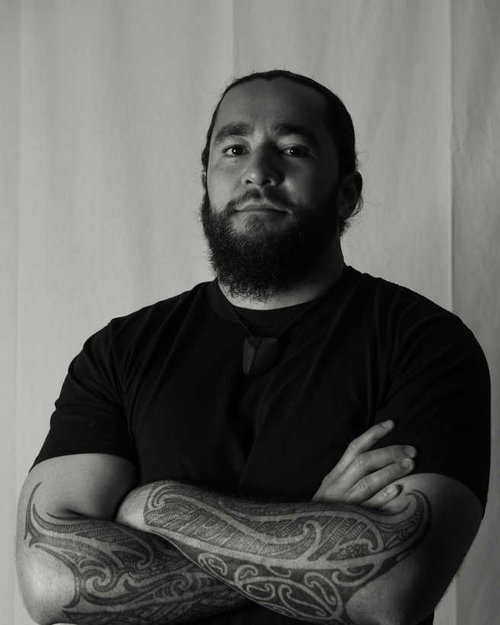
Keynote Speaker - Youth
He Aupōuri, he Ngāpuhi, he pānga hoki ki Waikato me Te Whānau a Apanui
Eru grew up in Te Tai Tokerau, the birthplace of He Whakaputanga (Declaration of Independence) and Te Tiriti o Waitangi (Treaty of Waitangi). Raised to be political and critical of our existence as tangata whenua (people of the land) by passionate parents also on their own journey of reclamation. Eru studied te reo Māori (the Māori language) and Pākehā (European New Zealander) law at Te Herenga Waka and has worked in a variety of legal roles. He now works as a legal academic, teaching about He Whakaputanga, Te Tiriti, tangata whenua rights, as well as the intersection between Māori and Pākehā jurisprudence. He also thinks deeply about the constitutional relationship in Aotearoa (New Zealand).
Furthermore, Eru has worked for his iwi Te Aupōuri and is a staunch supporter of the political party Te Pāti Māori. He is on a mission to empower te whakareanga hou (the new generation) through basic knowledge on tangata whenua rights to build confidence in holding and defending our truth that we never ceded our mana, and that we are still sovereign.
ANI MIKAERE
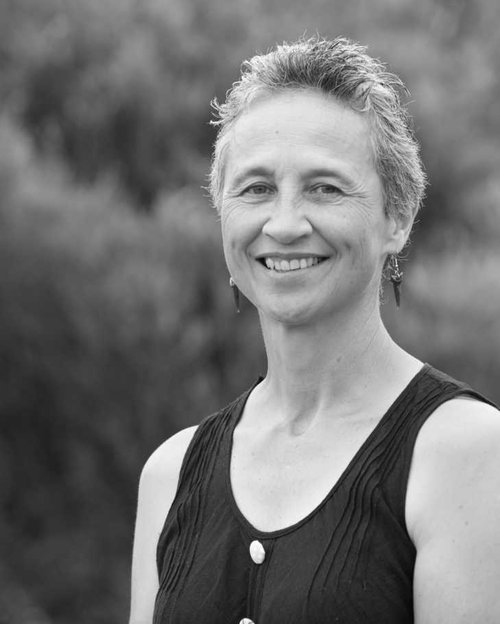
Keynote Speaker — Politics, Self Determination and Decolonisation
Ngāti Raukawa and Ngāti Porou
In her role as Pou Whakatupu Mātauranga at Te Wānanga o Raukawa, Ani Mikaere is responsible for leading and promoting activity that nurtures and grows the mātauranga continuum—the constantly evolving body of knowledge that has been produced by successive generations of Māori theorists and practitioners.
In 2016 she was awarded Te Kāurutanga, a degree conferred by the founding iwi of Te Wānanga o Raukawa. Her thesis, entitled Like Moths to the Flame? A History of Ngāti Raukawa Resistance and Recovery, investigates the impact of colonisation on Ngāti Raukawa thought. Other publications include He Rukuruku Whakaaro: Colonising Myths, Māori Realities and The Balance Destroyed.
Dr Teina Rongo
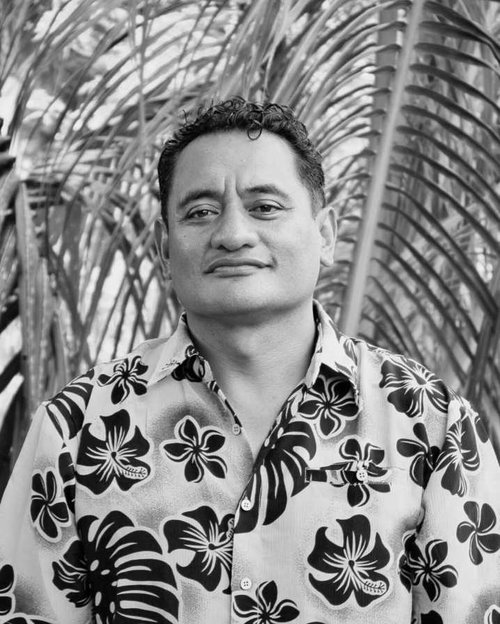
Keynote Speaker — Environment and climate
Cook Island Māori
Dr Teina Rongo is the Chairperson and Co-Founder for environmental NGO, Kōrero o te `Ōrau, based on Rarotonga in the Cook Islands. He obtained his PhD in marine biology from the Florida Institute of Technology. Teina’s area of research has been around coral reef ecology, ciguatera poisoning, and climate change. His field of study has cultivated his passion for improving the well-being of Indigenous Cook Islanders and their environment. Through the delivery of the NGO’s ‘Ātui’anga ki te Tango programme that uses a ridge-to-reef approach to teach environmental science, climate change, traditional knowledge and cultural practices, young Indigenous Cook Islanders learn the value of this knowledge and the role it plays in conservation, climate resilience, and the sustainable use of our natural resources.
Associate Professor Jeffrey Ansloos
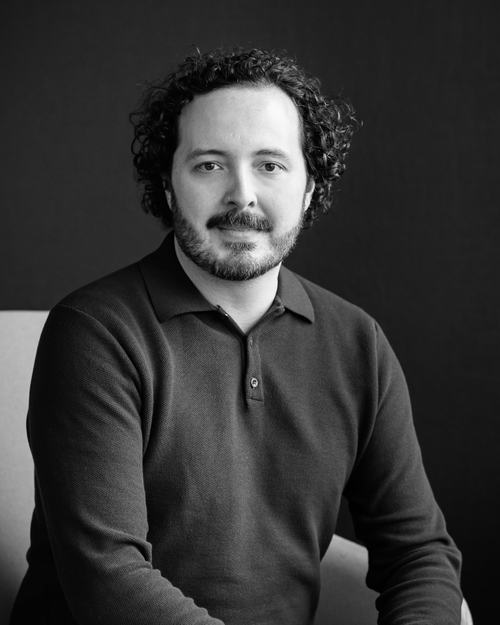
Keynote Speaker — Health and wellbeing
Fisher River Cree Nation
Jeffrey Ansloos is an Associate Professor of Indigenous Health and Social Policy and the Canada Research Chair in Indigenous Studies in Health, Suicide Studies, and Environmental Justice at the Ontario Institute for Studies in Education at the University of Toronto. His areas of scholarship focus on affective, socioecological and political dimensions of health; suicide prevention; youth and community mental health; feminist, queer, anticolonial and abolitionist methodologies; and land and community education. He is the founding director of the Critical Health and Social Action Lab, an innovation and research centre working to advance health justice with communities. Ansloos is Cree and English, and a citizen of Fisher River Cree Nation (Ochekwi-Sipi; Treaty 5). He was born and raised in the heart of Treaty 1 territory in Winnipeg, Manitoba and currently lives in Toronto.
Associate Professor Mere Skerrett
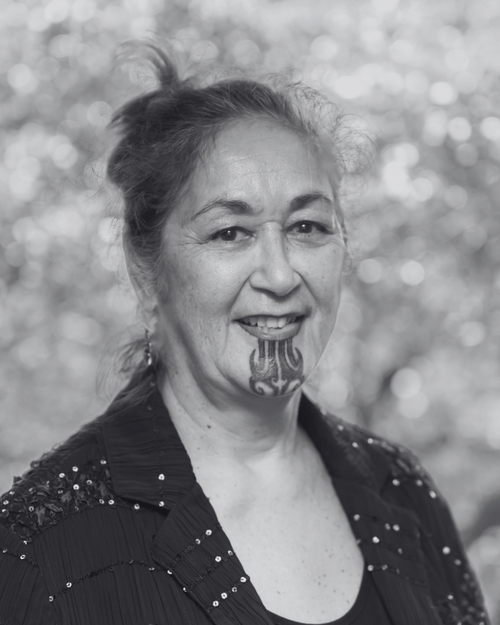
Keynote Speaker — Science and technology
Ngāi Tahu, Ngāti Rakiāmoa, Ngāti Ruahikihiki, Ngāti Māhuta, Ngāti Unu, Ngāti Maniapoto, Ngāti Pikiao, Ngāti Te Rangiunuora, Ngāti Pūkeko
Dr Skerrett is an Associate Professor in Education at Te Herenga Waka – Victoria University of Wellington and a trailblazing Māori researcher. Her current projects span eco-educational innovation — leading the Pātaka Reo (language component) of the Living Pā climate-adaptive research and an international study on sustainable early childhood education — as well as te reo Māori revitalisation, Māori Women’s Welfare League oral histories, and climate-resilience education. Her work is firmly rooted in Indigenous knowledges, addressing land, language, wellbeing, and sovereignty. She is an International AERA Distinguished Career Contribution Awardee and brings an Indigenous technoscience lens to science and technology in biliteracy development, reconciling Māori traditions with ecological futures.
Mere is an internationally recognised Māori scholar whose work integrates Indigenous knowledge systems, climate-responsive educational innovation, and language revitalisation. Her research and leadership bridge Māori cultural practices, early childhood pedagogy, environmental stewardship, and public accountability — delivered through an Indigenous technoscience lens — a holistic approach that “braids” place‑based Indigenous knowledge with scientific methods, blending empirical observation, spiritual values, cultural protocols, and relational accountability to land, language, and community. At the intersection of Indigenous knowledge, education, and ecological futures, Dr Skerrett champions cultural resurgence and research sovereignty to empower tamariki, whānau, and communities. Her approach reclaims ancestral wisdom and language — in partnership with contemporary science — to model transformative pathways in early childhood and beyond.
Katie Wolfe
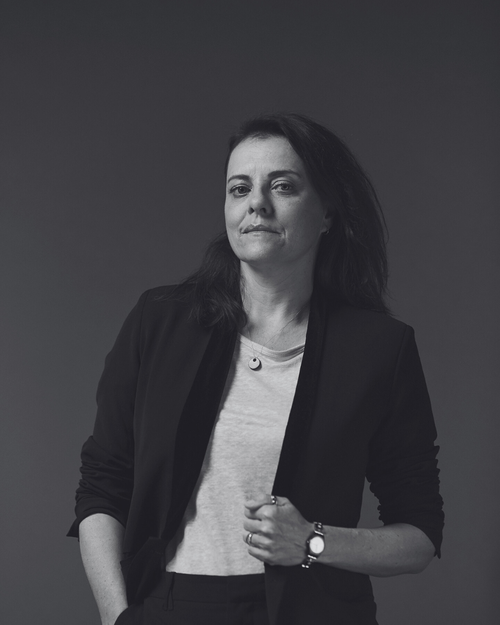
Keynote Speaker — Creative arts and media
Ngāti Mutunga, Ngāti Tama, Ngāti Toa Rangatira
Katie is a multi-talented director, writer and actor hailing from Aotearoa New Zealand, with an impressive career in both film, television and theatre. She has won critical acclaim for her work, particularly for her most recent theatre piece, The Haka Party Incident and films Waru, This Is Her and Redemption.
Katie is a passionate advocate for diversity and inclusion in the arts. She has spoken out about the need for great representation of women and Māori and has worked to create opportunities for emerging talent.
Katie Wolfe identifies as both Māori and Pākehā and this is reflected throughout her work. Most notably in The Haka Party Incident where the inciting incident is quite literally a violent clash between the Pākehā students and the Māori and Pasifika activists. Also, in Lament and Hope were Taranaki Iwi and the Pākehā descendants of the first New Zealand Company colonial settlers grapple with the concept of reconciliation. The conflicts, tensions, misunderstandings, breakdowns, triumphs and betrayals provide the stuff of great drama and documentary, but they also exist for Katie in the self. How do you hold a dual identity? How do you navigate the sometimes-binary nature of race politics? Do you have to pick a side? Where do you actually belong?
Cliff Curtis
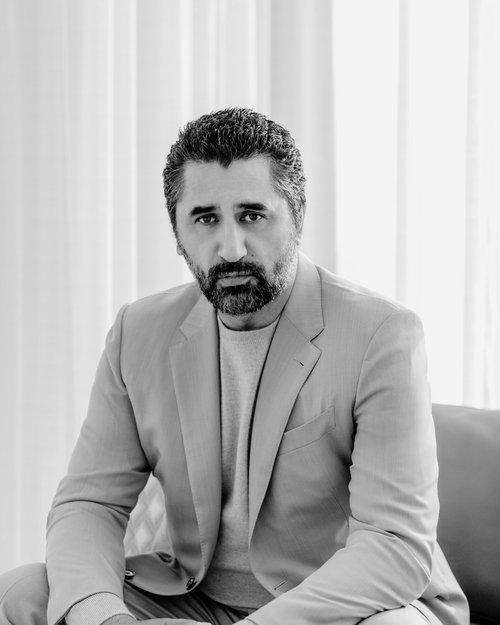
Keynote Speaker — Creative arts and media
Ngāti Rongomai, Ngāti Hauiti
With over 30 years experience in the film industry, Cliff Curtis has established himself as one of New Zealand’s most successful actors and producers.
In 2022, Curtis joined the ensemble cast of James Cameron's "Avatar" Sequels as “Tonowari” with the latest sequel Avatar: Ash & Fire due for release later this year. Current projects include Apple TV series "Chief of War" starring Jason Momoa and Season Two of Monarch: Legacy of Monsters.
In 2013, Curtis established Arama Pictures, dedicated to indigenous ownership through storytelling, inspired by mentors Merata Mita, Don Selwyn & Barry Barclay.
Lately he has begun to diversify his focus and to leverage his acting career into more social impact projects. From in front of the camera to behind the camera, financing, sales, distribution and investment.
With the greater mission being to uplift Maori and to shift the perception of what the culture is capable of in New Zealand and globally.
“The power of the film industry is that it can literally shape the narrative and empower indigenous story tellers to lead the global industry. The dream is that Māori can enter a new phase of growth within the screen sector.
Māori can lead, secure in their ownership and governance across the full ecosystem to not only maximise returns but build a legacy that has multi-generational impact. “
In 2024, Curtis received the FIAPF Award, given by the APSA's founding partner, International Federation of Film Producers Associations (FIAPF). Curtis received the prize for outstanding achievement in film in the Asia-Pacific region.
Professor Leonie Pihama
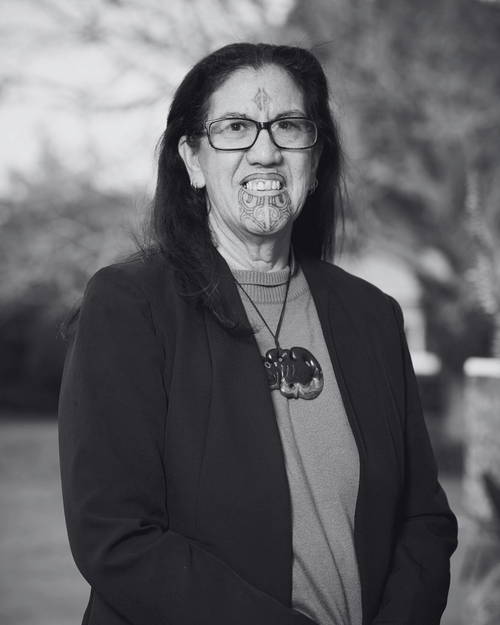
Keynote Speaker — Linguistic and cultural revitalisation
Te Ātiawa, Taranaki, Waikato
Leonie Pihama is a mother of six and a grandmother of six. She is Professor of Māori and Indigenous Research and Research Director at Tū Tama Wāhine o Taranaki. Leonie was a recipient of the Hohua Tūtengaehe Post-Doctoral Research Fellowship (Health Research Council) and the inaugural Ngā Pae o Te Maramatanga Senior Māori Fulbright Award. Leonie was awarded Te Tohu Pae Tawhiti Award (NZARE) for excellence in Māori Educational Research and Te Tohu Rapuora Award (HRC) to recognise significant contribution to Māori health excellence and leadership. Leonie was Director of The International Research Institute for Māori and Indigenous Education (IRI, Auckland) and Te Kotahi Research Institute (Waikato). She served on the Māori Health Committee for the Health Research Council of New Zealand and on a number of key boards including Māori Television, Te Mangai Pāho,and Ngā Pae o te Māramatanga. Her publications include: Ora: Healing Ourselves — Indigenous Knowledge, Healing and Wellbeing; Honouring Our Ancestors: Takatāpui & Two Spirit Wellbeing, Tiakina Te Pā Harakeke: Kaupapa Māori Research & Tamariki Wellbeing, and Te Aratiatia: Writings from the Māori Education Team 1988- 2000s (in print) Leonie is a Fellow of the Royal Society of New Zealand.
Rāniera (Daniel) Procter
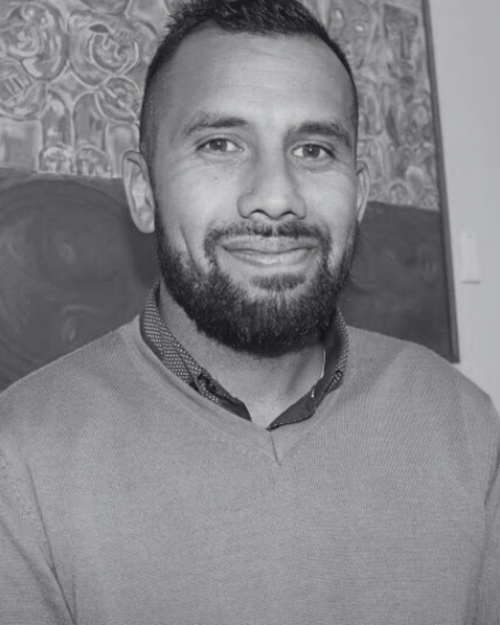
Keynote Speaker — Linguistic and cultural revitalisation
Uepōhatu, Ngāti Rangiwaho, Ngāi Tāmanuhiri, Tairāwhiti Whānui
Ko Rāniera te manu pīrere tuatahi kua tohia ki te Poari Matua o Ngā Kōhanga Reo. Nā tōna whānau kōhanga reo a ia i tohu, ā, nō te tau 2016 i whakamanahia ai tōna tūranga.
I te tau 2021 i pōtihia a Rāniera hai māngai mō te rohe o Te Tairāwhiti, ā, ka tohua ia hai tiamana takirua ki te taha o Te Wheoro Rangikotua, māngai mō Mātaatua/Tauranga Moana.
He manu pīrere a Rāniera nō Te Kōhanga Reo o Iti Kahurangi atu i Te Tairāwhiti.
He wheako hou ō Raniera i āna hīkoi i ngā pātūwatawata o te Ao Māori, o te Ao Whānui. Kua noho mai ia hai māngai, hai kanohi kitea hoki mō te kaupapa, ā, he kuhu ki ngā tōrangapū o te wā kia whai hua ai Te Kōhanga Reo tāna e whai nei. E whai whakaaro nui ana a Raniera kia tutuki pai tā tātau Wai Claim 2336, kua roa e noho tārewa ana.
He kaikōrero i te reo i ngā horopaki maha. Ka mutu, he ika-a-whiro nō Te Panekiretanga o te Reo. He pūkenga hoki ōna nō roto i āna mahi i te ao mātauranga me āna mahi toitū i te hapori.
He Pāpā anō ia ki Te Kōhanga Reo. Otirā, ko ia te Māngai mō “He Manu Pīrere”, ngā kanohi hou mō te kaupapa o te Kōhanga Reo.
Daniel is the first graduate of Kōhanga Reo to become a board member. He was nominated by his Kōhanga Reo whānau and appointed in 2016.
In 2021, Daniel was elected by Te Tairāwhiti rohe to be their representative on the Board.
He was reappointed as Co-Chair in 2022 with Te Wheoro Rangikotua board representative for Mātaatua Tauranga Moana.
Daniel is a graduate of Te Kōhanga Reo o Te Iti Kahurangi i Te Tairāwhiti.
It has been a new learning experience for Daniel to represent Kōhanga Reo in the structures of Te Ao Māori and political forums as a representative of Kōhanga Reo. He is passionate about seeing the fruition of the Wai 2336 claim.
A fluent speaker of te reo Māori and graduate of the prestigious Te Panekiretanga o te Reo, Daniel also brings his experience and knowledge from the education and social sector to the role.
As a Pāpā in Kōhanga Reo he also represents the He Manu Pīrere alumni and the future faces of the kaupapa.